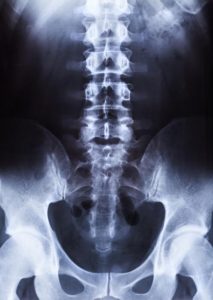Is Chiropractic safe? It’s a question which we hear less often these days, but one which still crops up from time to time. The short answer is – Yes! In fact, chiropractic treatment is one of the few options open for the treatment of many common problems (such as back, or neck pain) which does not come with a long list of potential side effects!
Wait, are drugs safe?!
We’ll address some of the more specific concerns about chiropractic in just a second, but firstly, lets take a look at a very important point. The alternative to chiropractic treatment in many cases, is the traditional medical approach based around the use of drugs. The fact is that these approaches themselves have a dismal safety record – with everything from botched surgery to serious side effects of medication being on the table. Even the seemingly benign class of over-the-counter medications called non steroidal anti-inflammatory drugs (NSAIDs) can have disastrous side effects if misused or overused – and in some circumstances even as suggested!
According to the Centers for Disease Control and Prevention, thousands of people are hospitalized each year, and many deaths occur due to adverse reactions to NSAIDs. Don’t get us wrong, proper medication and medical treatment can be key to treating certain conditions and of course can save lives – but when we’re talking about the treatment of spinal conditions, its rarely the best approach.
Not only are medication and surgery hazardous, but they may also be ineffective. Research indicates that while painkilling medication may provide a quick fix initially, it often exacerbates conditions over the long term. For instance, regular use of painkillers for headache actually appears to provoke more headaches to occur[1] . Researchers also theorize that long-term use of painkillers may trigger chronic pain conditions, such as fibromyalgia.
Surgery’s safety and efficacy records aren’t much better. For instance, a significant percentage of back-surgery patients return home without relief. Worse yet, the pain may exhibit traces of nephropathy: a disease or abnormality of the nervous system.[2] It is estimated that the United States, where back surgery is incredibly common, averages of 25,000 to 50,000 cases of failed back surgery syndrome are reported per year – and rates are growing across the globe.[3]
By contrast, Chiropractic, is rarely linked with any serious complications. Plus, research proves its efficacy in a wide range of conditions. Just read through our blog to check out pages and pages of research showing the ways in which chiropractic has been shown to assist in everything from lower back pain, to arthritis.
Having my bones “cracked” cant be good for me?!
This is actually a fair comment – and we’d agree, having your bones “cracked” probably isn’t good for you! Thankfully, that’s not what’s going on during a chiropractic adjustment!
In fact, the “cracking” sound which is associated with some adjustments (known as cavitation) is simply a drop in air pressure with in a joint , which occurs when a “stuck” joint becomes “unstuck .” Cavitation is not the sound of bones “cracking” or rubbing against each other – is much more like the process which leads to the “crack” when you crack your knuckles.
Chiropractors are professionals, trained extensively to perform adjustments gently – and to custom tailor these manoeuvres for each individual ‘s unique body type. A professional chiropractor positions their body, and yours, to allow an adjustment to be made with very little pressure at all.
In reality, most patients quickly start to enjoy their adjustments and many report and immediate sense of relief and relaxation!
I have heard that chiropractic adjustments to the neck may cause strokes. ls this true?
In short, no.
By way of a longer answer, we note that some research has indicated that that people who suffer a stroke are somewhat (but not very much) more likely to have visited a doctor of chiropractic within the months leading up to their stroke, although the association is extremely rare. What’s important to realise is that this link is a purely statistical one, and there is no evidence at all which suggests any link between the chiropractic visit and the stroke itself.
Some time ago, a smear campaign against the chiropractic profession attempted to overstate this risk, but the research does not support this assumption. In reality, the studies being referenced show that individuals who endure a stroke are more likely to see any type of doctor prior to their stroke – of which a doctor of chiropractic was just one.
In fact, these findings demonstrate that chiropractic adjustments do not cause strokes. Rather, individuals who are in poor health (and therefore more likely to suffer from a stroke in the coming months) are more likely to seek the care of any type of doctor (not just doctors of chiropractic) for complaints related to their cardiovascular problems, such as headaches and neck pain.[4]
Could a chiropractic adjustment make my problem worse?
When some people (usually people who have never had one!) talk about chiropractic adjustments, they naturally ask whether “crunching” a sore point might do more harm than good. As we’ve seen above, chiropractic adjustments are not a ”crunching” process, rather a very gentle manipulation – however, in any instance a competent chiropractor will perform a through initial examination (including x-rays if required) to ensure your issue is suitable for chiropractic treatment.
A competent and reputable chiropractor will never begin treatment unless they are sure that the patient only stands to benefit from treatment. As a chiropractor registered with the general chiropractic council, we recommend that you only use appropriately certified professionals – you can then rest assured that you’ll be provided with only treatment which is appropriate and safe for your complaint.
My healthcare provider has mentioned that there many be safety concerns with chiropractic, why would they say this?
There are many reasons why some medical practitioners (although there are far fewer today!) express concerns about chiropractic care. There are essentially two explanations for this.
Firstly, the more favourable explanation is a simple lack of education. Even today, a traditional medical education does not include holistic and complementary natural health approaches as part of its scope (Although this is changing in many countries). This means that many medical professionals simply don’t know enough about chiropractic to make a recommendation one way or another, and understandably they prefer to play it safe!
Secondly, the less favourable explanation is that medication and surgery are big business. As private healthcare becomes more common in the UK, while the NHS simultaneously looks to reduce costs, there are financial factors motivating decisions.
Another study suggests that back surgery is big business, which may result in excessive procedures. The study focused on the US, but the same principles apply in the UK.
According to the report, “the rate of back surgery in the United States was at least 40 per cent higher than in any other country – additionally, surgery rates increased almost Linearly with the per capita supply of orthopedic and neurosurgeons in the country. Countries with high back surgery rates also had high rates of other discretionary procedures such as tonsillectomy and hysterectomy.[5]
Got questions about chiropractic?
We’re always happy to answer questions before, during or after your initial consultation! Just get in touch any time and we’ll be pleased to put you at ease!
[1] Headache 1996;36: 14
[2] BMJ 2003 ;327:985
[3] Orthop Clin North Am 1985;16:417-44
[4] Spine 2008;15:S176-83
[5] Spine 1994; 19:1201-6


